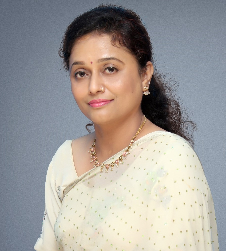Why a Webmaster
series on the subject of Nephrogenetics ?
More and more human maladies are recognized to have a genetic
component. A British survey which included more than one million consecutive
births, showed that the frequency of individuals younger than 25 years of age
who develop a disease with an important genetic component was 5.3%.Estimates of
genetic disorders in India are an astounding 70 million. Approximately 64 out of every 1000 live births are likely
to develop a disease with a significant
genetic component. This results from a multitude of factors. India encompasses
17% of worlds population with extensive ethnic diversity and comprises of multiple endogamous groups. These
communities widely practise consanguinous marriage traditions which leads to
accumulation of rare deleterious variants.
The molecular genetic approach has become a very strong tool in
the armamentarium of modern science especially with development and accessibility
of whole-genome sequencing (WGS) or
whole-exome sequencing (WES).The field of medical genetics is revolutionalizing the clinical practice and helping
to realize the long-sought goal for
personalized or precision medicine. Hence the knowledge of elementary genomics
and genetics as applied to the human medical genetics field is becoming
indispensable for the current and next generation of medical clinicians and
other medical practitioners
Nephrogenetic disorders /Genetic Renal
diseases have a
heterogenous phenotype, often presenting as multi-organ disorders. With the
emergence of newer technologies, rapid increase in knowledge and reduced cost
of genomic testing, we can not only identify well known conditions, but also
rare previously undiagnosed disorders. Correct diagnosis leads to specific
investigation and optimisation of clinical care. Awareness of the genetic basis
in renal diseases have paved the way to develop targeted therapies. Therefore,
we now need a co-ordinated team approach linking patients, clinicians, and
scientists. This may have significant health economic benefits to the family
and community at large. But despite overcoming many diagnostic obstacles,
genomic studies does not always resolve specific dilemmas of genetic renal
disease due to technological limitations, and incomplete knowledge.
The NephGen Master Series is an initiative to highlight the original
and intriguing journey from Renotype to Genotype. Faculty from multiple
specialities like Nephrology, Genetics, Immunology will come together to
decipher this ever-growing branch, highlighting the co-ordinated team approach.
The “case based” bi-weekly format promises to keep it interesting while
offering recent advances and its practical office based application for the
entire spectrum of Genetic renal diseases.

Honorable Dr Minnie Bodhanwala
CEO, Wadia group of Hospitals

Dr.
Alpana Ohri
Incharge
Pediatrics Nephrology,
Associate
Professor. Pediatrics,
Bai
Jerbai Wadia Hospitals For Children.
Mumbai.